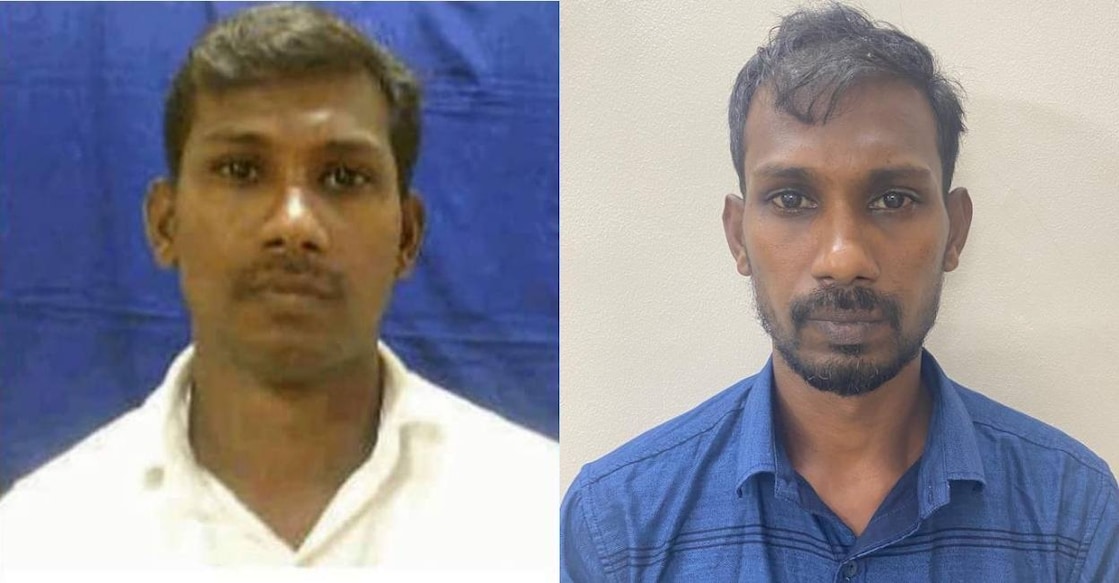Convicted rapist-murderer who escaped from Kerala's open prison arrested after two years

Mail This Article
Kasaragod: A rape and murder convict, who escaped from the open prison in Thiruvananthapuram nearly two years ago, has been arrested in Billadi, a remote village in the Udupi district of Karnakata.
Rajesh Kumar (39) was arrested based on a tip-off from a resident of Billadi village, said the station house officer of Kota police station in Udupi. The resident got an old news clip on his WhatsApp which revealed Rajesh as an escaped convict. "We contacted Neyyar Dam Police under which the open prison comes, and they sent us a copy of the FIR," the sub-inspector said.
Rajesh Kumar -- an autorickshaw driver and native of Vettinad village in Thiruvananthapuram's Nedumangad block -- was convicted of assaulting a 15-year-old girl sexually and murdering her.
On March 6, 2012, Rajesh's autorickshaw broke down near the girl's house and he knocked on her door seeking help.
When he realised the girl was alone at home, he assaulted her sexually and then strangled her, said the prosecutor. Rajesh Kumar left the house with 12g of gold ornament the girl was wearing, and he pawned it with a finance firm.
The police picked him up a week after the crime. When the trial began in the Thiruvananthapuram Principal Sessions Court, the country was in throes of massive protest following the 'Nirbhaya rape and murder case' in Delhi.
Judge B Sudheendra Kumar showed "no sympathy" to Rajesh Kumar and sentenced him to death in January 2013. The verdict came 10 months after the crime was committed and was lauded as the fastest in a rape-and-murder case in the country then.
But the Kerala High Court commuted Rajesh Kumar's death sentence to 25 years in prison without parole, and he was lodged in the Central Prison at Poojappura.
During the Covid pandemic in 2020, the Supreme Court directed the state governments to free up overcrowded prisons by letting inmates go on parole. Poojappura with a capacity of 800 inmates had around 1,600 inmates.
But Rajesh Kumar was not a convict to be freed on parole. So, the Prisons Department transferred him to the Open Prison at Nettukaltheri near Neyyar Dam.
The 450-odd inmates of the open prison, spread across 400 acres, engaged in farming, rearing cattle, and tapping rubber latex. Rajesh Kumar took up rubber tapping for a prison wage of Rs 210 per day.
But on December 23, 2020, Rajesh and Srinivas -- another inmate convicted of killing his friend's wife -- escaped from the open prison.
"Srinivas was soon arrested from Tirupur in Tamil Nadu," the Neyyar Dam station house office told Onmanorama on Wednesday. But the police had no clue where Rajesh Kumar was, he said.
After escaping from the prison, Rajesh Kumar reached Nailady, a hamlet in Billadi village with a population of around 2,800 people. "He was living here for the past year and a half as Rajesh Kumar. He did not hide his identity," said the station house officer of Kota station.
He took up a job on a private plantation as a rubber tapper, a skill he learned in the open prison.
He used his "original Aadhaar", which had his Vettinad address, to marry a 25-year-old Kannadiga woman. "She also works as a rubber tapper with him. She suffers from hearing loss and is five months pregnant," said the officer.
The Neyyar Dam station house officer said Rajesh Kumar had a child from a live-in relationship at Vattappara. "Then, he left her and married a woman and had a child from that marriage. This Kannadiga woman is his third partner. He has destroyed several lives," said the officer after bringing Rajesh Kumar back from Udupi Wednesday evening.
Rajesh Kumar will face a maximum of six months imprisonment for escaping from jail under Section 225 B of the Indian Penal Code.


